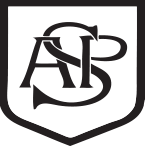Phonics Screening Check results
In Year 1, the Phonics Screening Check takes place in the Summer Term. This will check the child’s ability to use their phonic knowledge to read a list of 40 words which consist of real and nonsense words (alien words). We practise these phonics skills in daily phonics lessons to build pupils’ knowledge and confidence.
We are very proud of our children’s achievement in phonics. The year 1 data has been consistently above National Average as well as the Local Authority average.
Results for the percentage of children reaching the expected standard in the Phonics Screening Check:
| Year | School Data | Reading authority data |
|---|---|---|
| 2023 | 86.7% | 76.3% |
Learning to read at Alfred Sutton
We love reading at Alfred Sutton Primary School. We recognise that reading is the foundation of learning and therefore it is important that every child becomes a confident reader. We teach children to read using the systematic phonics programme Read Write Inc. Phonics.
What is Read Write Inc. phonics?
Read Write Inc (RWI) is a complete phonics programme which helps all children learn to read fluently and at speed so they can focus on developing their skills in comprehension, vocabulary and spelling. RWI was developed by Ruth Miskin.
Reading
The children:
• Learn 44 sounds and the corresponding letters/letter groups using simple picture prompts
• Learn to read words using Fred Talk and sound blending
• Read from a range of storybooks and non-fiction books matched to their phonic knowledge
• Work with partners
• Develop comprehension skills in stories by answering ‘Find it’ and ‘Prove it’ discussion questions
Talking
The children work in pairs so that they:
• Answer every question
• Practise every activity with their partner
• Take turns in talking and reading to each other
• Develop ambitious vocabulary
Writing
The children:
• Learn to write and form the letters/letter groups which represent the 44 sounds with the help of fun phrases
• Learn to write by using Fred Fingers
• Learn to build sentences by rehearsing sentences out loud before they write them
Reading
Fred Talk
We use pure sounds (‘m’ not ‘muh’, ‘s’ not ‘suh’, etc.) so that your child will be able to blend the sounds into words more easily. At school we use a puppet called Fred, who is an expert at sounding out words! We call it, ‘Fred Talk’ e.g. m-o-p, c-a-t, m-a-n, sh-o-p, b-l-a-ck.
There are three stages of sounds your children learn. They use pictures to help them learn each sound.
• Set 1 sounds: m, a,s,d,t,I,n,p,g,o,c,k,u,b,f,e,l,h,sh,r,j,v,w,th,z,ch,qu,x,ng,nk
• Set 2 sounds: ay, ee, igh, ow, oo, oo, ar, or, air, ou, oy
• Set 3 sounds: ea, oi, a-e, i-e, o-e, u-e, aw, are, ur, er, ow, ai, oa, ew, ire, ear, ure
Nonsense Words (Alien Words)
As well as learning to read and blend real words, children will have plenty of opportunities to apply their sound recognition skills to reading nonsense words. These words will also feature heavily in the Year one Phonics Screening check in the Summer Term.
Storybooks
When the children are able to blend words together with confidence, they will be introduced to Ditty books, moving through the storybooks as they learn new sounds.
Children use sound-blending (Fred Talk) to read their short Ditty books. Within all the books children will have red and green words to learn to help them to become speedy readers.
Red words are words that are not easily decodable and are challenge words to extend children’s vocabulary. Green words are linked to the sounds they have been learning and are easily decodable.
During RWI sessions, children will read the books three times and at each new reading they will have plenty of opportunities to practise using their developing comprehension skills.

Writing including spelling
Children are asked to spell simple words as soon as they know the first 5 single sounds, moving towards whole sentences when more sounds are known.
Fred Fingers
We teach to spelling using Fred Fingers. Every day the children are asked to spell the words they are reading during their Speed Sound lesson. It is a tool they can use so they will be able to spell any word.
The children:
• Say the word they want to spell
• Count the number of sounds in the word
• Pinch the sounds onto their fingers
• Write the corresponding letter
Hold a sentence
As they move onto Ditty and storybooks, the children are challenged to use their developing phonic knowledge to write short sentences.
The teacher tells the children the sentence they are going to write. Children practise it all together until they can remember the sentence. Before writing it down, teachers demonstrate how, referring to all the skills children will need to use to be successful.
Useful Links:
• Ruth Miskin Training YouTube Channel
Portal Videos
The following links will take you to Ruth Miskin videos which will help your child consolidate what they have been learning in class.
